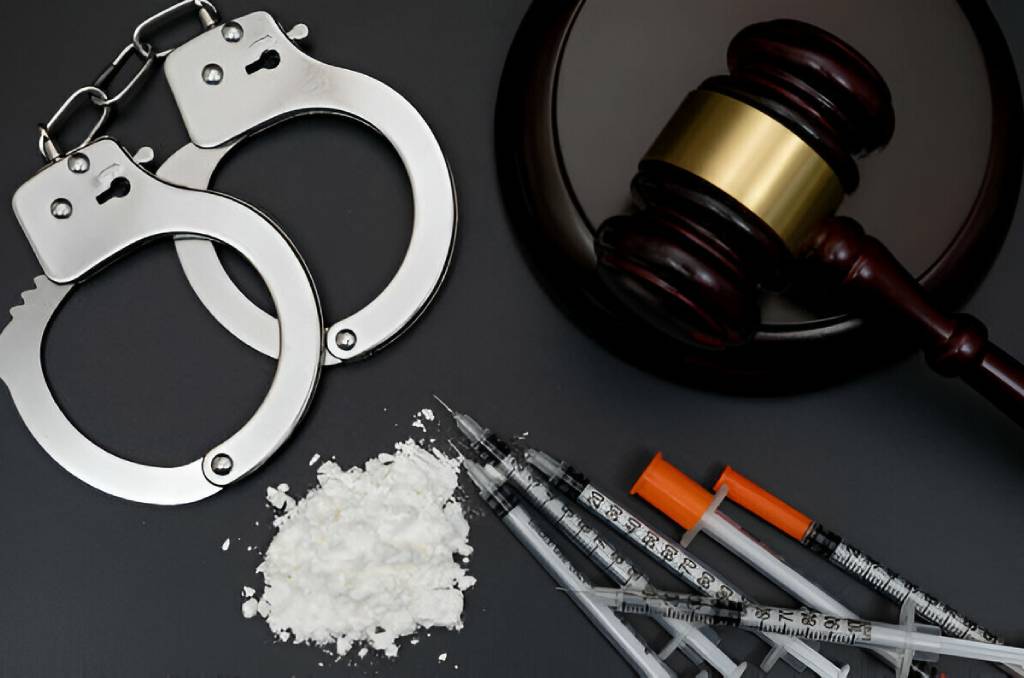
Drug crimes are serious charges that can have a huge effect on people’s lives. It is very important to understand how the legal system handles these kinds of situations. Each step, from the investigation to the sentencing, is very important to the result.
Drug charges include a lot of different crimes, from having a small amount of marijuana on hand to trafficking large amounts of drugs. The court process for these crimes can be hard to understand and change based on the seriousness of the crime, the location, and specific circumstances. This guide lays the groundwork for going into more depth about the legal process for drug crimes.
8 Legal Process for Drug Offence Cases
There are 8 legal processes for drug offence cases. These are –
Investigation
When someone is charged with a drug crime, the legal process usually starts with an investigation by the police. This can be done through monitoring, undercover operations, tips from informants, or raids on homes that police think are drug houses. During this step, the police gather proof against the people they think are guilty, such as drugs, financial records, and witness statements.
Arrest and Charges
Police can make arrests once they have enough proof. The suspects are arrested and told what charges are being brought against them. People can be held until their trial or released on bail, depending on the seriousness of the claimed crime and the area’s laws. Drug crimes can lead to a wide range of charges, from simple possession to drug trafficking.
Arraignment and Plea
This is when the accused go before a judge to hear the charges against them and enter a plea. People who are being charged can plead guilty or not guilty. If they say they are guilty or don’t challenge, the case may go straight to sentencing without a trial. If they plead not guilty, on the other hand, the case will go to court. An experienced drug offence lawyer is your best ally in navigating the complexities of legal proceedings and safeguarding your rights.
Pre-trial Motions and Discovery
Both the prosecution and the defence can file motions before the trial to deal with legal problems or ask the court to do certain things. In addition, the discovery method lets both sides ask for and look at the other side’s evidence.
Trial
This is when the government and the defence make their case to the judge. The prosecution must show that the defendant is guilty beyond a reasonable doubt. The defence, on the other hand, tries to question the facts and create reasonable doubt. People who saw what happened may be asked to testify, and drugs, lab reports, and police records are just some of the things that are shown and looked over.
Verdict
At the end of the trial, the judge or jury decides based on the evidence that was given. If the person is found guilty, they will be sentenced. If the ruling is “not guilty,” on the other hand, the defendant is free, and the case ends unless the prosecution files an appeal.
Sentencing
The court moves on to sentence if the person is found guilty or agrees to a plea deal. The severity of the sentence relies on many things, such as the type and amount of drugs involved, any previous criminal history, and how cooperative the defendant was with the police. For drug crimes, people can get probation, fines, jail time, drug rehab programs, or community service sentences.
Appeals
If the defendant doesn’t agree with the ruling or thinks the judge made mistakes during the trial, they can ask a higher court to review the case. Appeals are mostly about looking over the trial to see if there were mistakes in the law or how things were done. If the appeal is successful, the person may get a new trial, a different sentence, or their verdict may be thrown out.
Factors Affecting the Legal Process
Several things can change the course of a drug crime case:
Severity of the Charges: Possession of small amounts will usually get you less time in jail than selling or distributing them.
Type of Drug: The type of drug used can greatly affect the seriousness of the charges.
Past Offences: If you have a past of drug crimes, you will probably face harsh punishments.
Cooperation with the Police: Giving information about other drug criminals could lead to a lighter sentence.
Evidence: The strength of the prosecution’s evidence will have a big effect on how well your lawyer can make a plea deal or mount a defence.
Seeking Drug Offence Lawyer
It’s hard to figure out how the law applies to drug crimes. A criminal defence lawyer with much knowledge can be your best friend. They can stand up for your rights, look into the charges, come up with a strong case, and talk to the prosecutors on your behalf.
Final Words
The legal process for drug crimes is complicated and has many steps. To get the best possible result for the accused, a lawyer must navigate carefully and handle each step. We can work for justice and fairness when dealing with drug crimes in our communities by making the complicated legal system easier to understand.
Leave a Reply